|
When my oldest son was 6 years old, he asked us if he could play football. Although I was a solid "no" because I felt it was unsafe, he was determined to play. One year later, after I had done lots of research and talked to many coaches, I decided to let him try it.
After just 3 weeks of practice, he asked me if he could quit. While a big part of me wanted to take his little hand and whisk back to my car, leaving his stinky football equipment on the field, a voice inside me told me that I shouldn't let him quit just yet. He decided to stick it out and see what a game was like before he made his decision. That first game day was magical. The sun was bright and hot, a perfect New England September day. The music pumped throughout the stadium and my son got to hear his name announced over the loud speaker at his high school's football stadium as he ran through streamers held by cheerleaders. Although I cannot recall for sure, I am fairly certain that I cried. I was so proud of him and his teammates. They had made a commitment to each other and to themselves. Even though he didn't play much that game, he was hooked. That season I got to see my quiet, insecure, and timid son change before my eyes. He was becoming more confident, more assertive, and more hopeful. Football was helping to reveal an amazing version of himself, a version I had always known was inside. So, when our youngest son became old enough to sign up for football, I didn't hesitate. He knew what he was signing up for - after all he had just watched his brother play two full seasons. Just 3 plays into his very first football game, he scored a touchdown on a quarterback sneak play. I suspect that moment will be one of the moments that sticks in the photo album of his childhood in his mind - one of those moments he'll tell his own children about someday. Today my family heads into our final youth football season and I am so thankful for the gifts football has given to us. Year after year, I have seen football's lasting impact on my boys' school work, friendships, and in their other sports. It has taught us all patience, compassion, and the power of commitment. Lessons we'll carry forever.
0 Comments
8 years ago today, my family of 4 headed to our neighborhood bus stop for the last time.
Back on that day, my oldest was THE oldest at the bus stop - not just by age or grade but physically too. He towered above the other kids and looked completely out of place. It was on that day that I realized every single phase of childhood was reflected in our bus stop: - the newborn baby who everyone hovered over and smiled at - the toddler playing in dirt and eager to dart into the traffic - the preschooler with a million questions and comments about the world - the pre-kindergartner who desperately wanted to be getting on that bus that year - the kindergartner dressed in his very best khaki shorts and polo shirt, anxiety and excitement written on his face - the 1st grader who couldn't believe they had cried the year before - the 2nd grader who boarded the bus with secure confidence - they've got this - the 3rd grader who was starting to feel the power of being one of the "big kids" - the 4th grader who would get to sit near the back of the bus and begged to wear tech t-shirts and basketball shorts on the first day of school - the 5th grader who was beginning to feel out of place and ready to move on. But, that bus stop wasn't just a snapshot of each stage of childhood, it was also a cross section of parenthood: - the single parent managing it all on their own - the work from home parent who could only be away from her computer for so long before her boss got mad - the parents who worked opposing schedules and were handing off child care responsibilities in the morning - the stay at home parents who were somewhat grateful for one less child to entertain that day - the new-to-the-neighborhood parents who didn't know anyone. That school year 8 years ago flew by quickly and before we knew it, we were all standing back at the very same bus stop, this time on the last day of school. Sometime my heart aches a little when I drive by that old bus stop and catch reflections of who we all used to be. And sometimes, for just for a moment, I wish we were back there - back in that space where life was both harder and easier. If your children play sports, you probably know all to well how hectic life can get during sports seasons. My children get a lot out of their busy sports schedules but so do I.
Being a sports parent continues to teach me new lessons every day, many of which are applicable to all other aspects of life, things like learning: how and when to bite my tongue (because no one wants to get ejected from their child's game by an ump); how to pack a bag that is prepared for anything; how to clean grass stains from white baseball pants; how to deodorize football pads; how to cram an insane amount of sports equipment and coolers into the back of my car. You know what else I get from all these years of youth sports? Sideline Parents: the parents, grandparents, and other family members of the other children on your own child's sports teams. You spend weekend after weekend, year after year beside them during your children's games and, if you are lucky, your sideline parents can teach you a lot: 1. THE VALUE OF SUPPORT Sideline Parents don't cheer only for their child. They cheer for everyone's child - even children on the opposing team. They know what to say to encourage my child behind the plate, in the field, on the mound, on the line of scrimmage, and at the foul line. They know when he is down and needs support. They know when he needs to hear silence. They get him. They are my surrogates when I am not at games, texting me scores and play updates and providing color detail like "he's smiling soo big after that hit!" Their support is not just for my son but for my entire family and I had no idea how important it would be to have such support in my family's life. 2. THERE IS CRYING IN BASEBALL (and football and basketball...) Despite what Tom Hanks may say, there IS crying in baseball. Sometimes there is lots of crying - both from the kids and the parents. The Sideline Parents are there to hand out tissues, give hugs, provide words of encouragement and, if needed, whisk you away behind a car so you can cry without your child seeing it. 3. LAUGHTER MAKES IT BETTER Let's face it, some of these games can be long. Sometimes there are double-headers. Sometimes we travel long distances. Sometimes our athletes get very very smelly. Sometimes our team just can't catch a break and we have a win-less season. The Sideline Parents can find a way to laugh together and make everything a little easier. 4. SOMETIMES SILENCE IS GOLDEN Sometimes we just don't feel like crying, laughing or talking. Sometimes we just want to show up at the game in our ugly sweats, grungy baseball cap, and not talk to anyone. You know what? It's ok. The Sideline Parents is there to give you space without judgement or pressure. They get it. They've been there. 5. BEST PLACES FOR POST-GAME DINNERS If you want to know the restaurant with the cheapest kid's meal options, shortest wait times or most flexible check-splitting policies, ask your nearest Sideline Parents. They know it all! 6. HOW TO GIVE SOME KICK ASS CHEERS A few years ago the only way I knew how to cheer from the sidelines was to meekly clap and yell "Yay!" and "Go!" Now I've got a whole slew of cheers and phrases to yell. I also know how and when to institute things like the wave and changing seats to help our kids rally. I've also learned when NOT to yell (maybe I learned that from the coaches...). 7. THE RULES OF SPORTS The Sideline Parents are where you can go to ask the ever important sideline questions like "What's that mean?" "Why is he out?" "Why is the game over?" Together you try to crack the signals from the coaches and learn the signs from the umps and refs. Watching each other learn a rule or sports concept that is new to us is exciting! You know what's even more exciting? Figuring out the score without a score board and being correct! 8. THE BEAUTY OF TOURNAMENT VACATIONS Summer baseball means weekends of baseball tournaments. Sideline Parents know how to find and suggest destination tournaments which will require a weekend away with other baseball families. 9. FAMILY ISN'T ALWAYS BLOOD So many of the parents I have met at the ball field have become my family. My sisters. Aunts to my children. Their children have become brothers and sisters to my children. They are the people that we invite to our house even when our house is a messy disaster. They are the people that we let see the real us. They are our family. 10. HOW TO EMBRACE THE NOW Childhood is short. So so short. Someday your children will beg you to avoid their practices, not sit so close to their game and not cheer so loudly for him. So, while we can, all of us Sideline Parents will continue to spend our free time watching our babies grow into young men before our eyes. All of the rest of the stuff can wait. We are going to embrace the now. As summer comes to an end each year, I find myself happily diving into back to school tasks for my two teenage boys. Those days leading up to the return to school are usually filled with me creating color coded calendars with their class schedules, setting up organization systems for studying, figuring out ways to manage homework assignments, and reviewing school maps and processes with them so they can be sure they won’t get lost on their first day.
The fall is when I feel most needed as a mom This is often a time of year when I feel so completely alive as a mother – clear in how I am valued and where I am needed. It also is a time of when I feel stressed, overwhelmed, and alone — the weight of a successful start to the new school year resting solely on my shoulders. Today that weight was lifted and I am equal parts relieved, heartbroken, and proud. Knocking on my freshman’s bedroom door this morning to remind him to take his mandatory concussion test for athletes, I found him already deep into the test. How had he remembered to get it done without multiple texts and reminders and nagging from me? All I did was forward him an email last week with a due date and it got done. My high school freshman can manage his responsibilities without me Without my help. Later on, as he passed by me in the hallway to get a snack from the kitchen, he causally rattled off some of the other tasks he had done this morning, including figuring out when and where his socially distanced lunch breaks would be held, and completing some forms that were due by next week. How could that be? Just an hour earlier I was knee deep in a social media thread where other high school parents (myself included) were panicking about everything from lunch to school drop off to homework. Yet, he figured it all out on his own. Without my help. Surely, I thought to myself, he would need the annual lecture about how it would be important to go to bed early tonight and wake up earlier tomorrow, enjoy a healthy breakfast, and start his first day off right. But, he beat me to the punch, telling me his detailed plan for school night bedtimes, school morning wake ups, workouts, and meals. He figured it all out. Without my help. With only a few hours to go until he starts his first day of high school, I’m finally beginning to realize that my high schooler doesn’t need me in the way he used to. I am no longer needed to calm any nerves about lockers not working or getting lost on the way to his class or what will happen if he doesn’t get to see his friends on his first day at a new school. I no longer need to follow him around like a trusty old herding dog, reminding him where he needs to be and what he needs to get done before and after school. He can do that all on his own. I no longer need to review every single assignment and communication from teachers to make sure he understands the requirements. He can figure it all out on his own. Without my help. Gone is the shy, timid, nervous little boy who held back tears while he boarded the school bus for his first day of kindergarten 9 years ago. Gone is the young teenager with poor self-esteem who worried if he would be made fun of on his first day of middle school 3 years ago. In place of the shy boy is a confident young man Instead, standing before me is a bright, confident, and capable young man, poised to begin his high school experience, arguably the most important 4 years of his life so far. And, this young man no longer needs me to do it all for him. It’s time for me to pivot into a different approach of parenting so that I may better respond to his shifting needs and abilities. He will always need the love and support of his mother, of course, just not in the same ways he used to. Neither of us are quite sure yet what that will look like but I’m sure he will figure it out. It seems like these days he always does. Without my help. (originally published by Grown and Flown at: https://grownandflown.com/high-school-freshman-is-capable-independent/ When I was 4 years old, my preschool class took a field trip to go hiking in the woods at a local state park - and we got lost.
I don’t really remember the details of that day - but I do remember the feelings. It turns out that parenting is a lot like that field trip to the woods. Sometimes it can leave me feeling lost. Sometimes it can feel dangerous and scary. But sometimes it can also be full of beauty and wonder. When my babies were little, I could carry them on my hip as I traversed the trails of parenting. Together we could look at all the beauty around us. As they got older, my babies wanted to walk as they held my hand. Together we wandered through life’s many trails. Back then I could guide them down the most beautiful trails but could also let them show me the woods through their own eyes. When things felt safe, I could send them ahead of me, their laughter and giggles filling the air around us. Those days of parenting were a beautiful adventure. But once they reached their teenage years, they needed me to slow my pace and leave more space between us. They wanted more room to explore on their own. And now parenting feels a lot like that day I was lost in the woods. It’s scary in here more often than not. Still beautiful. But scary. Some of the paths in these woods are ones that I have walked many times and they are ones I don’t want my children to have to walk. Ever. Most of those paths are barely visible anymore. Their entrances are blocked by thick thorny branches and tall grass has filled in their once well-worn paths. Danger signs have been posted to warn anyone who attempts to tread those paths. Those of us who have walked those paths know where they lead - to dead ends, scary mazes, and sudden cliff drops. Although those paths might sometimes let in some brief glimpses of a blue sky and let you feel the warmth of the sun, they are paths filled mostly with darkness. But I can’t stop my teen from going down those paths. Even if I beg and plead or throw myself at a path’s entrance, some of these paths are ones he must walk on his own. He needs to see for himself what the path is really like. And so we have to let him go. We’ve helped him fill his backpack with all the necessary supplies. We’ve armed him with maps and compasses and emergency flares. He knows we’ll be there to rescue him whenever he needs an emergency airlift from the path. He knows he can always turn around and follow the path back to the clearing. Back to us. But he also knows in his heart that he must make the trek. And I know in my heart that I must let him. And just like that day I was lost in the woods, he will find his way too. Before I became a parent, I assumed parenting was hard.
Then I had my first baby and quickly realized that parenting is way harder than I ever could have imagined. When my baby became a toddler with his own big personality, an inhuman-like ability to slither like a snake out of my arms when he didn’t want to be carried, and a deep commitment to throwing massive tantrums, I realized that parenting had somehow become even more challenging. Parenting a high schooler is the hardest phase yet Fast forward to today and I find myself facing the hardest phase yet of parenting: parenting a high schooler. With just a short bit of time so far under his belt as a high school freshman, I find myself more confused than ever when it comes to how to parent my son. When do I step in and communicate with his teachers? How much do I remind him and check up on him about his school work and home work, especially during these times of partial remote learning? When do I loop in the administration if there are bigger concerns? What ARE bigger concerns at this age? When do I get involved? When do I keep quiet and shrink into the background? Today the finish line of his childhood looms larger than ever in the distance. Next year he can drive a car. In two years we start looking at colleges. In three years he’ll be in his final year of high school. Just like that — these days will be gone. The pressure of finishing high school looms large Sometimes the pressure of that looming finish line is overwhelming, knocking the breath right out of my lungs. We have just a short time to hold on to him tightly and enjoy these final years while at the same time stepping back from him and letting him make his own decisions and fail on his own. Parenting a high schooler seems to be a never-ending cycle of missteps and course corrections, a constant stream of muttering lessons to ourselves: “Oops I stepped in too far. I should have let him handle this.” “Oops, I should have jumped in sooner. This was too much for him to handle on his own.” For over 14 years I have known that every stage of parenting was getting harder. Yet the challenges I face today as a the mother of a high schooler have somehow caught me completely off guard. Sometimes I miss those newborn sleepless nights, the toddler tantrums, and the nervous early school days. Sometimes I miss my little boy. Sometimes I want that finish line of childhood to stay in the distance just a little bit longer. My son is still a child but also an emerging adult But, when this almost adult son of mine who towers over me, wraps me in his arms and tells me he loves me all while asking for $20 to go out with his friends, I’m reminded that balance still exists between the child and adult sides of him. Somehow, despite all the uncertainties and challenges that this stage of parenting brings, it also seems to be the best so far. There is space to just enjoy each other’s company and there is beauty in watching the rapid transformation that takes place in high school. Just as we did with every other stage of parenting, we will figure it out. We will be ok, even when we cross that finish line. (originally published 09/30/2020 on Grown and Flown at: https://grownandflown.com/parenting-high-school-freshman-is-hard/) “Kids are too soft these days.”
I rolled my eyes and tuned out the parent next to me at the youth baseball game when he started on a tirade about “today’s kids.” The truth is, I’m tired of hearing people say that we are raising a generation of soft kids. When did we all agree that we wanted to raise tough kids anyways? Why should our goal be to raise kids who slough off danger like it’s no big deal? Why should our goal be to raise kids who tolerate being bullied by their parents? Why should our goal be to raise kids who don’t know how to express any feelings other than anger? I know the answer that parents like the one next me will give. “We can’t raise soft kids because life isn’t fair.” “People are going to be mean to our children when they are adults.” “Kids need to develop thick skin to make it in this cruel world.” I just don’t buy it. What if we all tried to raise soft kids? Kids who aren’t afraid to express their feelings and emotions and will likely be better partners and parents for it. Kids who notice other people hurting in the world and want to help create change, rather than place blame. Kids who let their heart, rather than their pride or arrogance, guide them in life. If having soft kids means having kids who know the power behind their words and choose kindness over hate, then let me have soft kids. If raising soft kids means that they don’t have to listen to me shouting criticisms at them in front of their teammates, coaches, and opponents, then I hope they turn out soft. If raising soft kids means that I have kids who don’t tolerate racism, prejudice, and hate, then I hope I raise soft kids. Maybe all these soft kids can help make the world a better place. Isn’t that a better option than throwing our hands up and conceding that the world sucks? Maybe I’m just too soft myself but I have hope that we can do better. We have to do better. A few weeks ago I ran away and I brought my family with me.
It’s become my favorite thing to do for my birthday week. Nestled neatly between the end of the school year and the beginning of the longest stretch of summer, for years that week has provided my family and I with the perfect freedom to get away. There are 4 simple rules for this escape from our normal lives and they are always the same. Our location must:
This year as I floated in the vacation pool with my champagne-margarita in hand, I realized that although those 4 rules are constant, we never travel with the same 4 people. In fact, two of the guests on this trip are completely different each year. This year we traveled with an almost 17 year old, complete with his driver’s license, and a 5’11” 13 year old with long flowing hair that would leave even the 1969 version of Paul McCartney completely jealous. A few years ago, we traveled with a soon to be high school freshman and a soon to be first year middle schooler, both eager and nervous to start the next stage of their educational and social adventures. And it wasn’t that long ago that we traveled with a real life 7 year old pirate and his 10 year old transformers-obsessed brother. Somehow it really feels like just yesterday that we were traveling with two tiny children - pull ups, blankies, and pool swimmies jammed into our suitcases as we lugged strollers and car seats through airports. But this year instead of little voices shouting “mommy watch this!”, the pool was filled with the manly voices of my teenagers and my husband playing one of their many games of intensely physical pool basketball. While they played, I sipped my cocktail and smiled at the sounds of their booming voices shouting out to each other. And every once in a while, I closed my eyes and could almost hear the echoes of the small boys that used to travel with us. Because those little versions were still there too. The truth is that if I look closely enough I can always see those versions everywhere. They are in the dimples on their faces They are in their sweet expressions when they fall asleep. They are in the way they throw their heads back when they find something truly funny. They are there in their still favorite blankets. They are there every time they choose to sit down beside us on the sofa to play music or watch a movie. They are always there - no matter how old their current versions get or how many inches they tower over me now. And what a gift it is to watch the sweet merging of all those versions of my babies. I wonder who will join us next year. Picture it: You are at a sporting event. All around you, there are sounds of swearing, fans shouting insults at coaches, and people arguing with each other. The air is filled with tension. People are yelling things like:
“Are you kidding me?” “Use your head!” “What is WRONG with you?” “What do you know? You shouldn’t even be an ump!” “We don’t have all day — make a play!” Just another day at any professional sporting event right? Nope. This is another day at a youth sporting event. Any city. Any town. Any sport. Any age. Kids. Teens. Our children. It is not a scene of which we should be proud. It is not a scene that is made any better if it is followed by a title like “Undefeated” or “Champs.” Let me be the first to publicly and openly admit I am guilty of some of these behaviors. Negativity can be a catchy little bugger, and I have found myself quickly sucked into the negativity vortex on more than one occasion. While I am being honest, I should admit that I have probably sometimes been the start of the negativity. But, I’m not proud of it. I can do better. All of us can do better. Isn’t it time we hold up the proverbial mirror and take a good, long, critical look at ourselves as parents of children in youth sports? Honest self-reflection is not easy; it is hard, painful work, and it is time to do the work. What would youth sports look like if we all practiced some of the following strategies? 1. Be proud, not boastful.I get it. There are moments when we want our children to feel like they are the best. Of course, we are filled with pride when our child makes the varsity squad or an all-star team or has the best stats. We should absolutely share that pride with the world! But, can we find a way to express pride in our children without putting down someone else’s child? Can we teach our children to be proud of themselves without being arrogant? Can we be a bit more mindful about HOW we express our pride? Can we help our children to win with grace and dignity? Do we really need to pit our children against each other? Where will that lead them as they move through the really difficult parts of their childhood and adolescence? 2. Let it go.It seems our social media accounts have become the high school cafeteria for adults--ripe with mean girl behavior and teasing. Passive-aggressive memes and posts litter our social media feeds, often under the guise of being funny or insightful or offering interesting comments and quotes. If we are being honest, though, sometimes they are nothing more than hurtful jabs at other parents and coaches or even other children. Will we tolerate such behavior from our own children in a few years on social media? I hope not. So, why do we allow ourselves to stoop so low now? Why do we tolerate it from our own friends when we see it? We are not going to like everyone and not everyone is going to like us. People will push our buttons and make us feel crazy, for sure. It’s our jobs as the grown-ups to find a way to cope with those feelings in a positive and respectable manner. We have to be the role models — even when we don’t want that job. 3. Point out the positive.Negativity spreads like wildfire. One coach, parent, ump, or child with negative energy can set off a chain reaction of negativity, and soon everyone has it. You know what it looks like. Slumped shoulders. Eye rolling. Head shaking. Slamming things. Muttering under breath. It happens. But, do you know what else spreads like wildfire? Positivity. It’s OK to cheer on 8, 9, 10, 11, and 12-year-olds. It really is. Yes, even after they make a mistake — even a huge mistake. You can still find something positive to say in most circumstances. Despite what some people say, I firmly believe that building up our children will NOT create a generation of helpless, spineless, whine bags. 4. Inspire improvement.I would never advocate only pointing out the positive and I am not advocating for participation trophies for everyone. We should absolutely be providing our children with clear and constructive feedback as we help them to be better versions of themselves. What if we were all a bit more thoughtful about how and when we provide such feedback to our children? When are we doing it out of anger and frustration versus the result of thoughtful consideration? Can we encourage our children to reach their goals without demeaning them in front of everyone? 5. Remember winning isn’t everything.Sure, state, district, and national titles would all be amazing. But, if you are being honest, how much would they really truly matter to our children in 10 years? Will such things define them? Will they define us? If so, what does that mean about us? Sometimes, it isn’t about the winning at all. Sometimes, some of life’s greatest lessons come from the loss. 6. Remember they are kids.We are raising children in a much different world and a much different time than when we were children. Today’s children have a lot on their plates in today’s world. Their lives are plenty hard enough right now. It’s easy to forget they are still children. Quite a few of them still hold tight to the stories of Santa Claus and the Tooth Fairy. Would it be terrible to let them just have fun and enjoy their youth? Would it be OK for them to enjoy the game, even if they lose? Next time you are at your child’s game, I encourage you to take a moment and breathe it all in. Look around at what is happening. These days are going to be over soon — for them and for us. How do you want your child to remember these times? How do you want to remember these times? Could we all do better? I believe we can. We should. For us. For each other. For them. Originally published on Her View From Home HERE Somewhere a long time ago, I began creating color coded school schedules for my children each year.
The truth is, they probably don't need them. They probably don't even look at them after the first day. I like to say that creating these schedules helps to set my children up for success. But, in reality, I need these schedules more than they do. I love the summer months and extra time with my children but summer’s lack of a schedule leaves me feeling unhinged, off-balance, and scattered. Comfort is what we crave when we are stressed, anxious, and overwhelmed and for me, comfort has always been found in the beginning of a brand new school year. The structure makes me feel relaxed and in control. The consistency makes me feel calm. The order makes me feel balanced. Memories of 9 solid months every year of being seen, heard, and valued makes me feel safe. So, as a new school year begins to loom on the horizon, I feel a growing sense of calm. I lean into the task of spreading out backpacks and school supplies on my dining room table. I beam as I type all the important school dates into our shared calendar. I let out a deep sigh of relief as I begin to settle back into a new school year. I inhale comfort and exhale chaos. School is back. And these pretty color coded schedules with matching color notebooks and folders are a reminder that everything will be ok. |
ParentingParenting is one of life's greatest challenges and greatest rewards. Here we explore all aspects of parenting from pregnancy onward, highlighting both the struggles and the triumphs. Archives
July 2023
Categories
All
|
Sign Up For the Changing Perspectives Newsletter
Changing Perspectives with Jenni Brennan is supported by its audience.
When you purchase through links on this site, an affiliate commission may be earned. Learn More.
When you purchase through links on this site, an affiliate commission may be earned. Learn More.
Changing Perspectives Copyright © 2023

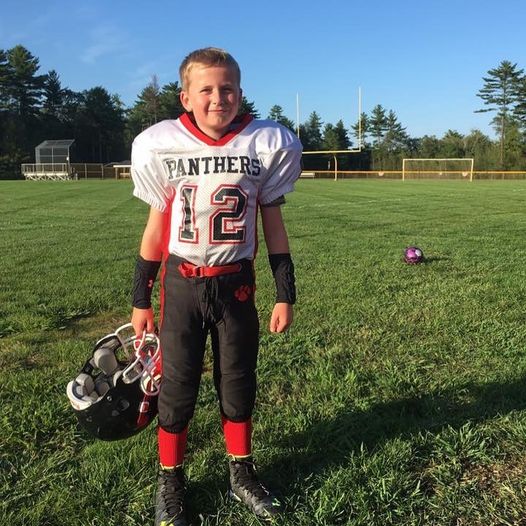
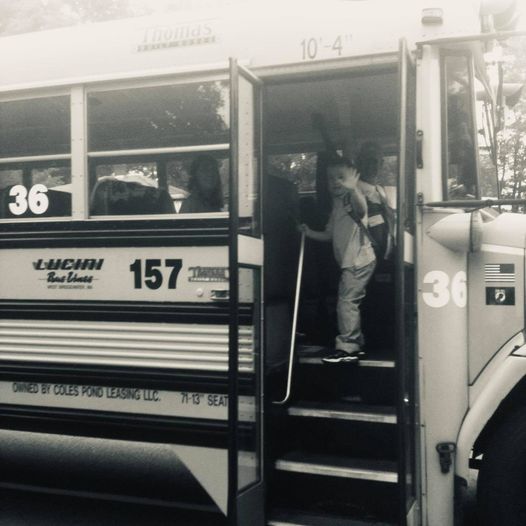

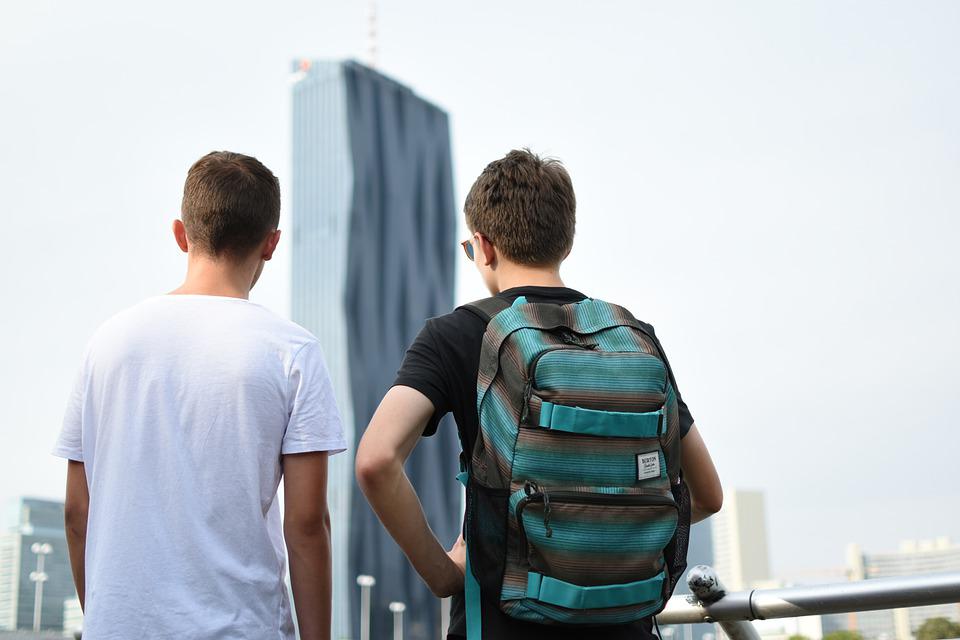

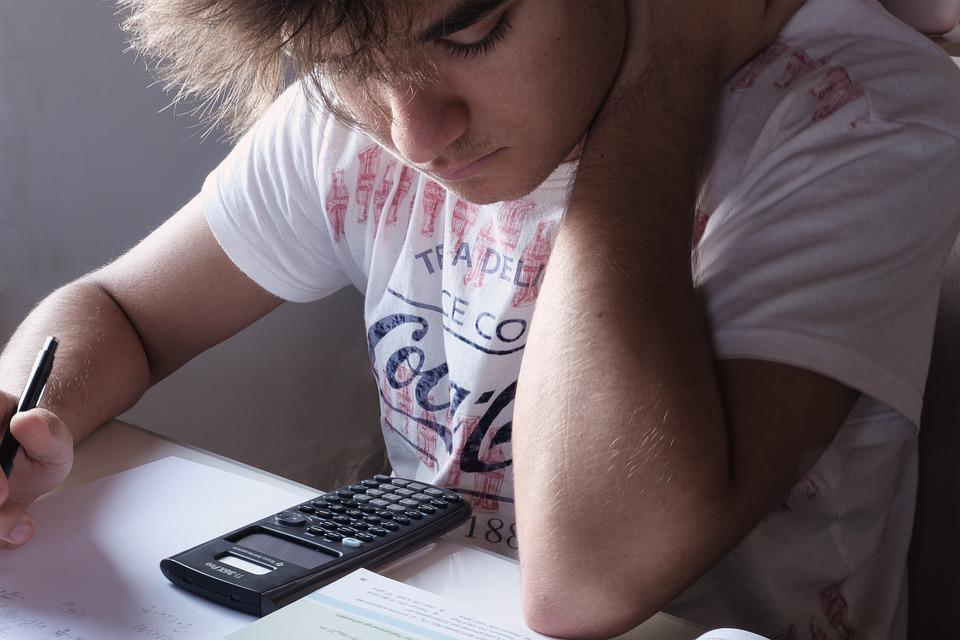

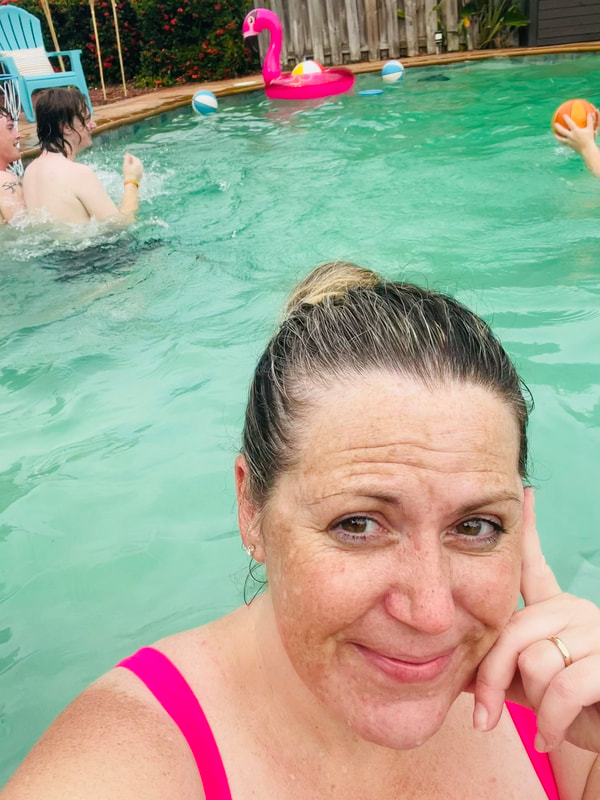
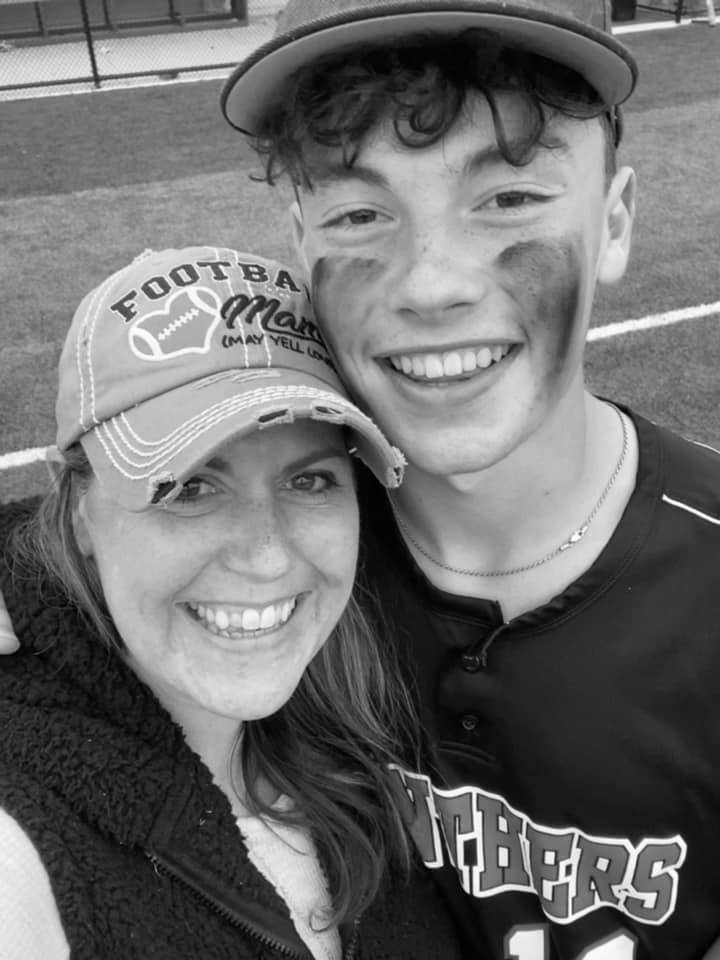

 RSS Feed
RSS Feed
